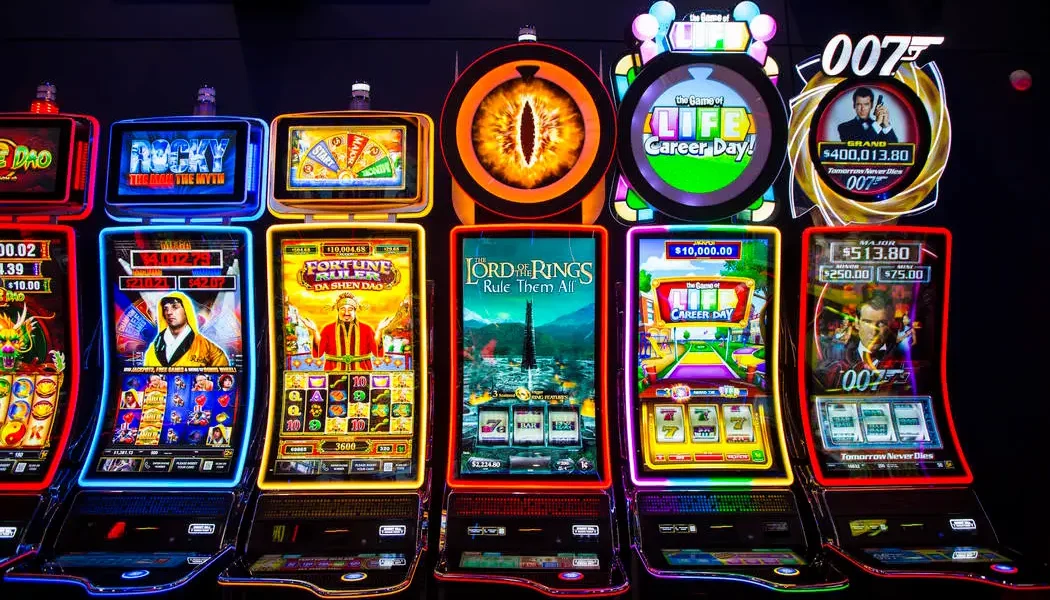Tilt is a gaming term for frustration, rage and the reduction of gameplay ability due to frustration or anger. It is sometimes seen as the precursor or manifestation of problem gambling.
Frequency of tilt episodes was an effective predictor of problem gambling among our sample. Furthermore, tilt displayed moderate covariance links to irrational beliefs, anxiety levels and two subscales of impulsivity subscales within this sample.
What is a slot machine?
Slot machines are gambling games that rely on probability and chance principles to attract players and generate profits for casino owners. Although seemingly straightforward, slot machines actually represent an intricate combination of engineering expertise and mathematical knowledge that are vitally important.
Charles Fey first invented slot machines in 1894. Their signature design remains relatively unchanged today; though modern games may include bonus rounds or multiple ways to win.
One of the key components of any slot machine is its Random Number Generator (RNG). This technology ensures that every spin is independent from previous results and that odds of winning or losing don’t vary based on how a player plays; making slot machines truly fair and honest. Each second, RNGs produce thousands to millions of combinations that correspond with reel positions on slot machines.
What is tilt?
Tilt is an all-too-common term in gaming that denotes frustration, anger and an overall decrease in gameplay ability. Tilt can result from any number of sources; losing a game, technical problems or confronting challenging opponents all may contribute to player dissatisfaction – gaming businesses can improve player experiences by devising plans to minimize tilt.
Gaming businesses can help players avoid tilt by providing positive reinforcement, encouraging breaks for emotional release, and offering resources to manage emotion and stress effectively. By creating an inclusive community for gamers to enjoy themselves with gaming businesses can increase player engagement as well as revenue.
Though further research is required, our player surveys and interviews suggest that teaching players about the causes and effects of tilt could be an important way to prevent problem gaming. An increased understanding of tilt could enable us to design more effective prevention and intervention programs to combat online gambling addiction. *Adapted from The American Heritage(r) Idioms Dictionary by Houghton Mifflin Harcourt Publishing Company in 2002.
Why do I get on tilt?
Tilt is an emotional response to in-game events which deteriorates gameplay ability, often associated with frustration, rage and irrational beliefs. Tilt can often be found within esports environments but has also been observed within physical sports and gambling environments. Tilt often coincides with anxiety and anger feelings as well as feeling of urgency and the desire for personal gain.
Players that become tilted often direct their frustration at other people or things, leading them down an unwise path of decision-making. If they believe a loss was the fault of one of their team or league mates they may become angry and take drastic measures such as shouting at them directly, posting nasty comments in chat, or breaking their equipment.
When players find themselves becoming heated in a game, it is essential that they step away and regain their focus. Listening to music, taking a walk, drinking some water – anything which helps soothe the mind can help players come back to it with fresh eyes and return with a clear mindset.
How do I get off tilt?
To prevent tilt from impacting your game, you need to identify what triggers it and address those issues before they escalate into larger issues. Each person’s triggers may differ but some common ones include being short rolled (playing too high a stake than what your bankroll can support), dwelling on errors or mistakes and feeling entitled.
Stress or other non-gaming activities that make you more susceptible to tilt, such as having an exhausting day at work or not getting enough restful sleep are other key pre-triggers and should be addressed prior to sitting down at the table. These should all be handled before playing any gaming sessions.
Once you recognize that you’re getting too upset, the easiest way to stop yourself is taking a break. Even just 10 minutes can help you calm down and reset. Do something physical such as punching a punchbag, running, or taking a hot shower to release negative energy and bring yourself back down to earth.






